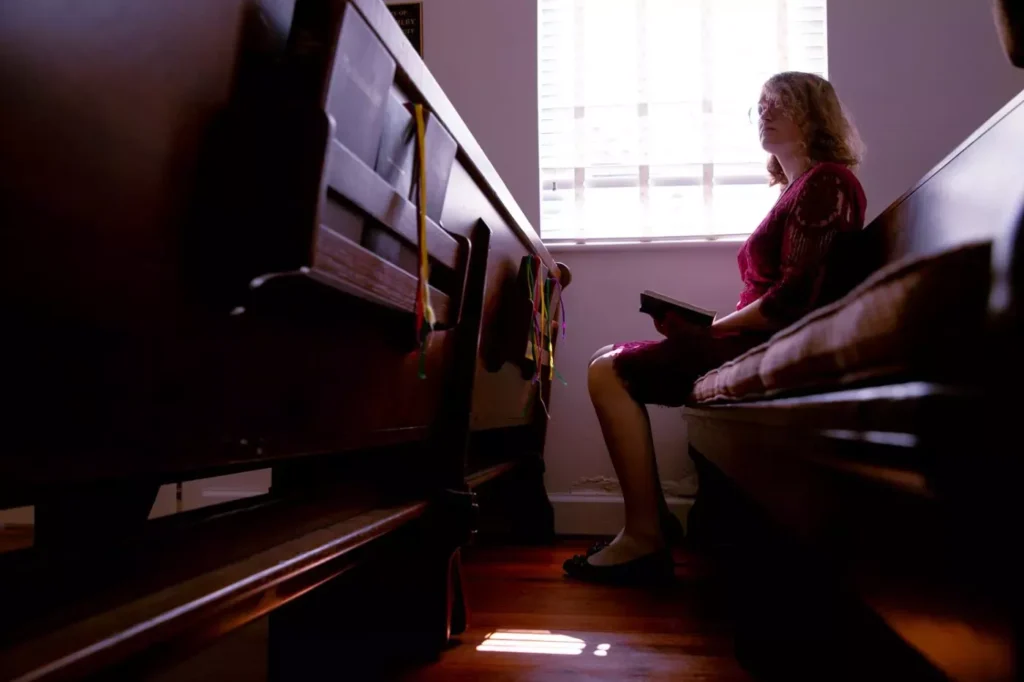LYNCHBURG, Virginia – In a case pitting religious freedom against transgender ideology, one of the country’s largest Christian universities is being sued by a former employee over the school’s decision to fire her once she began to transition to a woman.
The Fourth Circuit Court of Appeals allowed Liberty University on Friday to appeal a lawsuit from the former employee, giving the religious school a second chance to prove the former employee violated the university’s doctrinal statement and religious policy on gender.
Mat Staver, founder and chairman of Liberty Counsel, spoke exclusively with the Washington Examiner, saying the case has significant implications for Liberty University’s right to uphold its Christian doctrine against transgender ideologies.
“If Liberty University were to lose this case, it would be catastrophic,” said Staver, representing Liberty University. “Not only for Liberty University’s Christian mission and its doctrine, but for everyone.”
Liberty University is a private, evangelical university in Lynchburg, Virginia. Jonathan Zinski, the former employee now suing the school, came to work at the information technology helpdesk in February 2023. Zinski has admitted to waiting until after the 90-day probationary period before disclosing in an email that she had begun taking hormones four months before starting her employment and planned to transition to a woman and legally change her name from Jonathan to Ellenor Zinski. One month later, on Aug. 8, Liberty University held a meeting to inform Zinski that she was being fired for transitioning.
Liberty wrote in a letter given to Zinski during the meeting, “Employing a person who takes the measures you describe to deny the biological and chromosomal sex God assigned at birth would not be consistent with Liberty University’s values or advance its religious mission.”
The university told Zinski it believes in God’s design for males and females, as described in the Doctrinal Statement Zinski agreed to uphold and signed during the hiring process. Liberty also said, “Liberty does not believe such identification and flexibility is either necessary or appropriate in its workplace.”
Zinski wasn’t just sitting behind a computer screen but was required to interact face-to-face with students and staff when technical problems arose across campus.
“Students have to comply with the religious doctrine of Liberty University,” Staver said. “Imagine now if the staff gets a free pass, and they have all kinds of people that directly violate their Christian doctrine. You have Jonathan, who becomes Ellenor, a man who wants to now identify as a woman, and that person’s on the other side of the desk working with you, it sends a terrible message.”

Zinksi filed a lawsuit supported by the American Civil Liberties Union. Wyatt Rolla, who is the ACLU-VA Senior Transgender Rights Attorney and Counsel for this case, wrote in a statement to the Washington Examiner: “No matter your religious beliefs, it’s illegal sex discrimination to fire employees because of their gender identity.”
Both use Title VII of the Civil Rights Act of 1964 as their argument. The initial complaint from Zinski claims that Liberty University’s firing of an employee for being transgender is a violation of Title VII because it discriminates on the basis of sex. Liberty University’s motion to dismiss argues that Section 703 gives an exemption for religious schools to hire employees based on religion.
“This case was set up specifically to challenge not only Liberty University, but all religious and Christian organizations,” Staver said. “Not just schools, but churches, every religious employer with regards to this LGBTQ, particularly the transgender issue as it relates to religious doctrine.”
Counsel for Liberty University believes Zinski attempted to bait the university into a lawsuit by applying for the IT job four months after beginning to take female hormones. Specifically because when offered the job in February 2023, Zinski signed and agreed to adhere to the school’s Doctrinal Statement rejecting transgender transition, and then only waited to announce the transition until the Virginia standard 90-day probation period was over.
“If someone can intentionally lie, affirm that they believe your doctrinal statement, knowing that they really don’t believe it, and then, when the 90-day probation expires, then come after you to change your doctrinal position that you’ve had since the founding of the ministry,” Staver said. “Then you have no constitutional protections. You have no right as a Christian employer. You have no right as a church to be able to operate and be distinctive and faithful to your Christian message, and that’s why this case is so critically important.”

The ACLU claims Zinski is a “devout Christian” who wanted to work at LU and forward the university’s mission of evangelism. It outlines how Zinski grew up regularly attending church from a young age, saying, even today, that Zinski is an active member of a local church in Lynchburg, Trinity Episcopal, and the pastor fully supports the transition, even providing female clothing for Zinski to wear.
“The first time anyone ever supported me by telling me that God made me this way was at Trinity Episcopal Church,” Zinski told the ACLU. “There doesn’t need to be a conflict: you can be transgender and Christian. I am.”
In February, U.S. District Judge Norman K. Moon ruled in favor of Zinski. The former President Bill Clinton appointee wrote that Zinski’s employment at Liberty University does not interfere with its religious views.
“Liberty’s continued employment of Zinksi does not significantly burden Liberty’s ability to maintain its views and associate for its expressed purposes,” Moon wrote in his opinion. “The only inference that we can draw for Liberty is that Liberty may be seen as a hypocrite for employing a transgender person when it opposes transgender identity; but the same could be said for Liberty’s employment of any other type of person who ‘sins’ despite Liberty’s opposition to sin in general.”
On May 23, the Fourth Circuit Court of Appeals permitted Liberty University to appeal the lawsuit. The Title VII, First Amendment, and the Federal Religious Freedom Restoration Act will all be heard before the Federal Court of Appeals.
“We’re disappointed that the court has decided to consider an appeal from Liberty University,” Rolla said. “Which is seeking to avoid liability for firing Ellenor Zinski for that exact reason in 2023, especially in light of well-established law on this issue, and before the facts in the case have even been fully presented. Liberty University is still bound by federal law, and we mean to see this case through until Ellenor gets justice.”
Staver gave a warning about the significant implications this case could have on religious organizations protections from transgender ideologies.
“It’s not a matter of if you will be challenged, it’s just a matter of when you will be challenged,” Staver said. “It will come because cases like this, people like this, that are pushing the LGBTQ agenda, will intentionally try to set you up to take you down.”
If appeals continue, Liberty Counsel says it will press on to the Supreme Court. If the case makes it to the high court, the justices will have to decide whether religious rights or transgender rights prevail.
“I believe this case will finally end up at the U.S. Supreme Court, and I’m praying for ultimate victory,” Staver said. “Anything less would be catastrophic for religious freedom.”
“I hope that standing up to Liberty will show that they cannot do this to anyone else,” Zinski told local Lynchburg news station WSET. “I don’t want anyone to ever have to experience what I did.”
According to the lawsuit, Zinski wants a payout of $300,000 in compensatory and punitive damages, plus back-pay, reimbursement for attorney’s fees and costs, and for Liberty University to make a statement saying they violated Title VII in handling Zinski’s employment and firing.
























